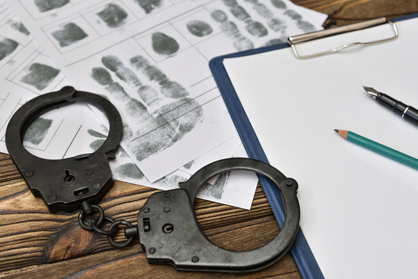Summary: After months of testimony, the prosecution has rested its case in the Dewey & LeBouef criminal trial.
American Lawyer reports that, after 45 days of testimony, prosecutors rested their case in the Dewey & LeBoeuf criminal trial this week.
Attorneys for former Dewey chairman Steven Davis and former CFO Joel Sanders moved to dismiss the charges. Andrew Frisch, Sanders’ attorney, filed a motion on Thursday, arguing that the state’s case had “overarching deficiencies” that should lead to dismissal. Elkan Abramowitz of Morvillo Abramowitz Grand Iason & Anello, Davis’ attorney, argued in a separate motion that the prosecutors had only presented “paltry evidence” along with “rank speculation upon which a guilty verdict cannot be based as a matter of law.”
Read about the prosecution’s arguments here.
Davis, Sanders and Stephen DiCarmine, the former executive director of Dewey, are accused of operating a scheme to fraudulently misrepresent the firm’s financial status to lenders and partners. Prosecutors have questioned a slew of witnesses since the trial began in May, attempting to demonstrate that the defendants used accounting tricks to falsely inflate the firm’s bottom line before it eventually collapsed in 2012.
Frisch pointed out that the state did not call one expert witness qualified in accounting or finance. That failure is unacceptable “in a case where accounting fraud is the sine qua non of the indictment’s allegations.” Additionally, Frisch argued that the state did not prove that the accounting measures linked to Sanders were actually prohibited, or that he intended to defraud others. However, according to the Wall Street Journal, a forensic accountant did testify during the trial, and alleged that assets were boosted by over 1,000%.
Davis’ motion was similar. It read, “There is no evidence from which the jury could reasonably infer that Mr. Davis ‘stole’ anything, caused others to make false business records, conspired with anyone or engaged in a scheme to defraud anyone.”
Austin Campriello of Bryan Cave, DiCarmine’s attorney, said he would also move for dismissal of the charges.
The judge told the attorneys to return on Tuesday afternoon to discuss their motions.
Kristen Marola was the final witness the prosecution called. The firm’s former human resources director, Marola testified that members of the finance department earned bonuses that were linked to collections targets. She added that the targets were typically set by Sanders or Francis Canellas, the former finance director. Canellas has cooperated with the prosecution and pleaded guilty to grand larceny for his involvement in the case.
Canellas was under fire during the trial.
Christopher Conroy, an assistant district attorney, entered into evidence emails that showed administrators involved with billing and collections received five-digit bonuses in 2008. DiCarmine and Sanders approved an incredible $200,000 bonus for Canellas.
During cross-examination, Marola said that her former bosses worked hard and deserved some sympathy. Campriello showed the jury an email from Marola to DiCarmine that was sent a few weeks before the firm declared bankruptcy. At one point, the firm employed 1,300 attorneys—making it the largest law firm failure in U.S. history, according to Nasdaq.com.
“I just want to let you know that I am thinking about you. The news and blogs have been relentless and brutal,” she wrote.
She said that DiCarmine as dynamic and inspiring, and that she would work for him again. She also said that she still thought DiCarmine is “awesome.”
Marola also said that Sanders was a hard worker and sometimes tried “to do a thousand things at once.”
The trial has had the world’s attention.
She did state that she had not spoken to Davis about bonuses.
The prosecution rested at 11:45 a.m. The judge told the attorneys to return on September 8 to hear the defense. He anticipates starting deliberations in the middle of September.
Source: American Lawyer
Photo credit: NYPost.com, andrewfrisch.com (Frisch), newyorklawjournal.com (Abramowitz, Campriello)




















































